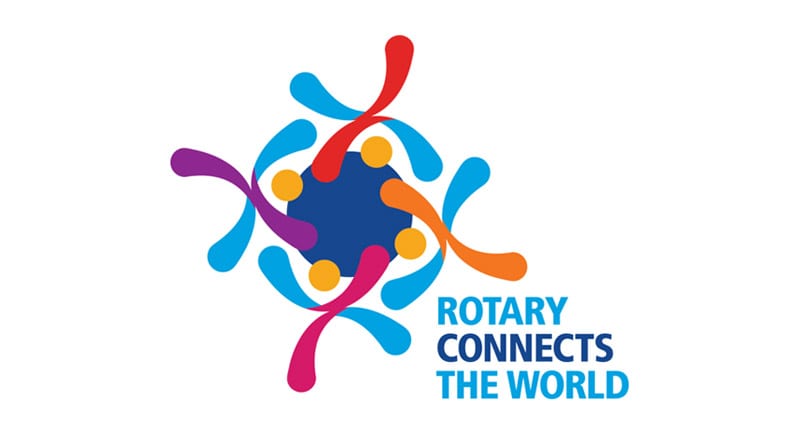Nearly two and a half thousand years ago, the Greek philosopher Aristotle wrote ‘What is the essence of life? To serve others and to do good.’ This is the oldest quote I know regarding volunteering and to me, it proves that giving back to the community is a long-held tradition. Rotary’s motto of ‘Service above Self’ and mission of ‘Doing Good in the World’ are befitting adaptations of Aristotle’s long-ago words.
In the modern world we live such busy lives it is hard to find the time to volunteer; however, research has shown that the benefits of volunteering are enormous. It not only helps others, but it also builds better communities and provides numerous benefits to the mental and physical health of the volunteer.
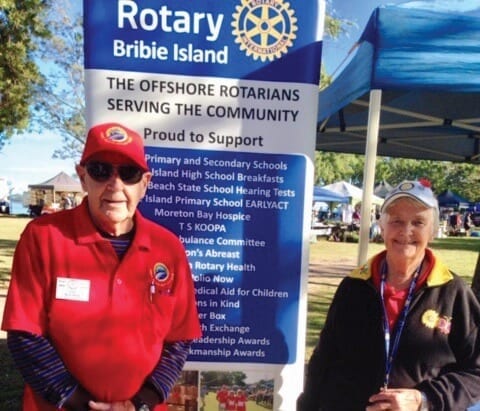
What we might call it a win/win situation! Volunteering helps counteract the effects of depression, stress, anxiety, and anger. The social contact of helping and working with others has a very positive effect on your overall psychological wellbeing. Nothing relieves stress better than a connection with a likeminded person or someone in need. Also, using pets for therapy has demonstrated what a positive impact an animal has on people’s moods.
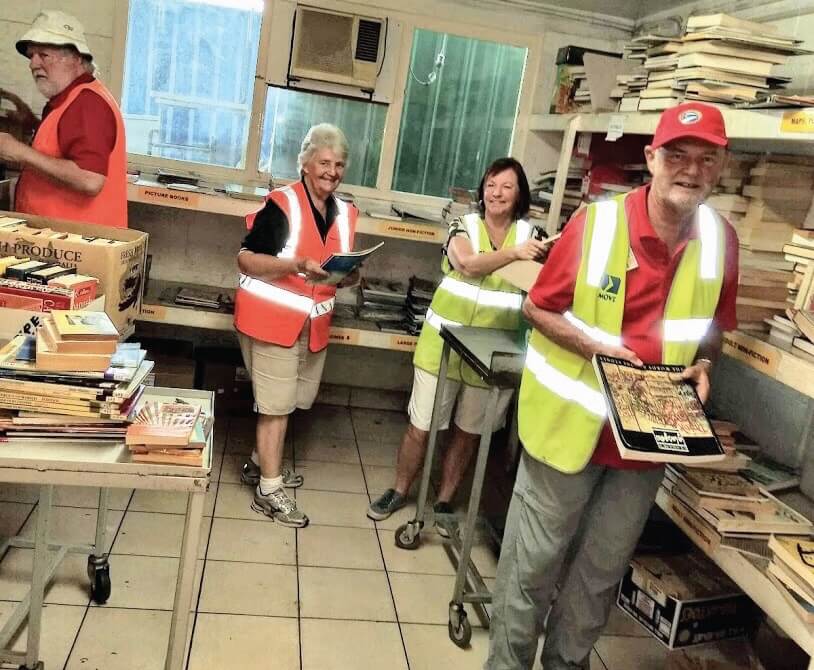
One of my friends takes her beautiful dog to hospitals and nursing homes. She talks so positively not only about the benefits provided to the receivers of the dog’s attention but of the happiness, it brings to her. Volunteering does make you happy. By measuring hormones and brain activity, researchers have discovered that being helpful to others brings great pleasure. Human beings are hard-wired to give to others.
The more we give, the happier we feel. A good example can be found in our current Christmas season where many get more satisfaction out of giving a gift than in receiving one. To see the pleasure on another’s face is all the gratitude we need. It has also been proven that volunteering improves self-confidence, provides a sense of purpose and helps volunteers stay physically healthy – thus, volunteering themselves to health!
A recent worldwide study on the ‘The Scope and Scale of Rotary Volunteering’, conducted by the ‘John Hopkins Centre for Civil Society Studies’ found that:
- Rotary’s 1.2 million members volunteered a total of nearly 5.8 million hours in the four-week reference period. Taking out the hours of volunteering associated with World Polio Day, which fell in the survey reference period, Rotary members accounted for close to 5.1 million hours of volunteering;
2. Rotary annually mobilises volunteer effort equivalent to nearly 27,000 full-time paid workers;
3. Rotary volunteers save communities an estimated US$850 million in service costs per year;
4. Our members are responsible for 47 million hours of volunteer effort per year; and
5. Average volunteer hours per month varied by region with the average hours in Australia and New Zealand being 6 (see graph).
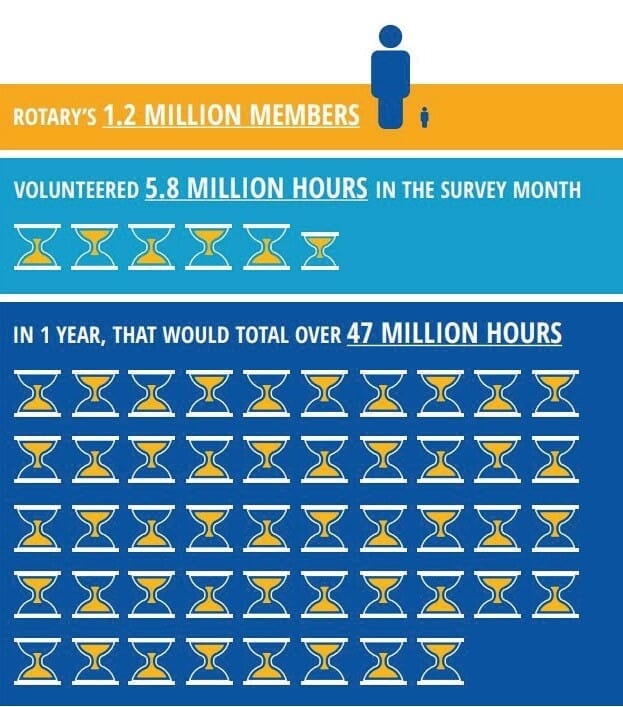
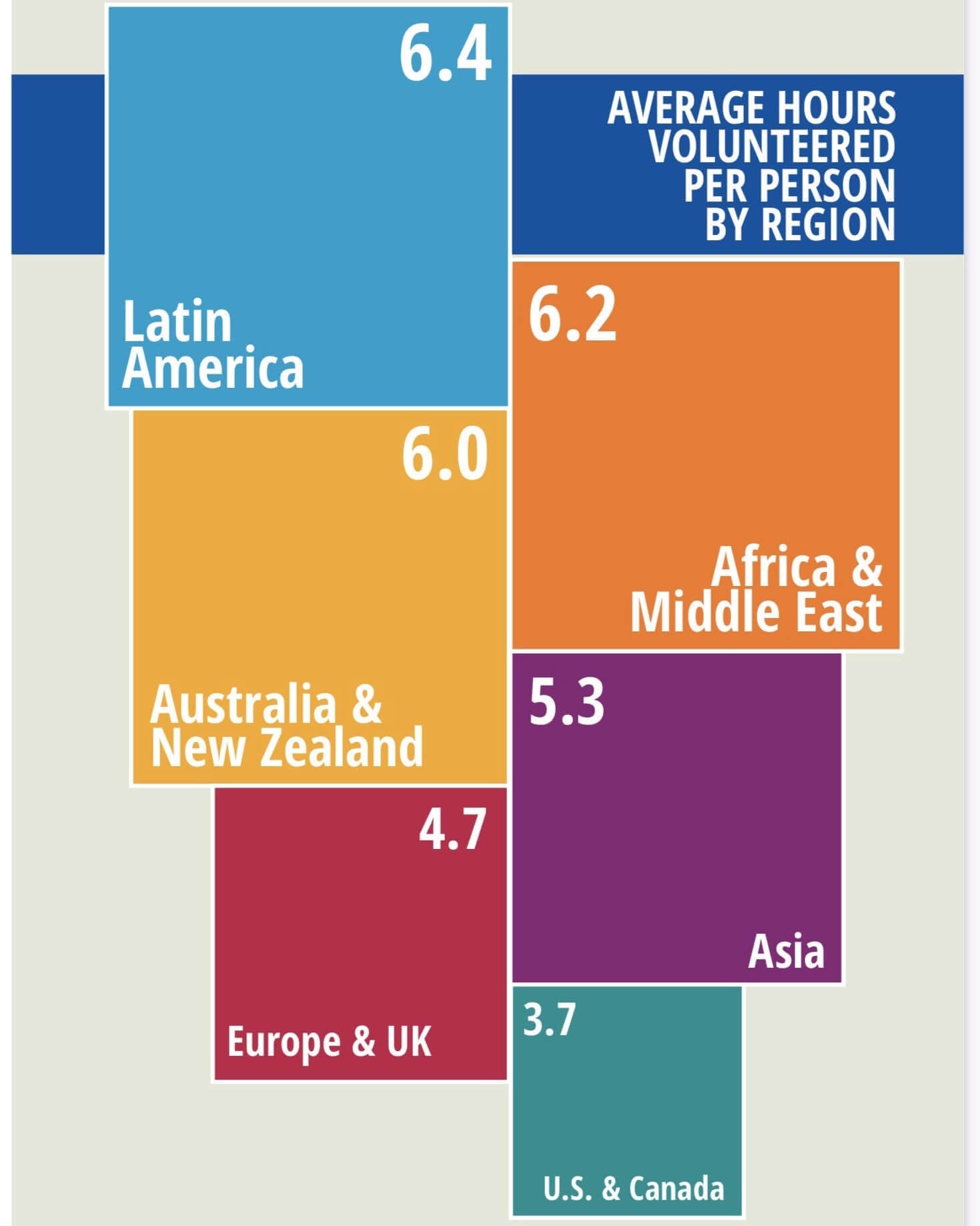 These statistics do not even include the more than 1 million friends and relatives of members who frequently help out at Rotaryorganised volunteering events. Nor do they include the volunteering contributed by the more than 700,000 members of Rotary’s Rotaract, Interact, or Community Corp affiliates.
These statistics do not even include the more than 1 million friends and relatives of members who frequently help out at Rotaryorganised volunteering events. Nor do they include the volunteering contributed by the more than 700,000 members of Rotary’s Rotaract, Interact, or Community Corp affiliates.
The study concludes that ‘Rotary is annually generating a scale of social and economic problem-solving effort that is worth nearly nine times more than it costs the organisation to produce. Here is a powerful demonstration of the enormous leveraging possibilities available from mobilising the unique renewable resource represented by volunteer work.
For a world challenged to meet a demanding set of Sustainable Development Goals (SDGs) in the face of withering environmental catastrophes and limited governmental and philanthropic resources, the lesson is clear: volunteer service is not only a feel-good calling—it may provide one of the more promising, and one of the more fulfilling, avenues through which to achieve the ambitious goals that the international community has set for itself.
By putting itself through the demanding inquiry described here, Rotary may thus have done a special service by opening this avenue for all to see. If so, this work will have more than met its objectives’. As someone who majored in Sociology and Psychology at ANU and received Distinctions in units such as Methods of Social Research, I found the methodology used in the John Hopkins study ground-breaking.
Previously it was not possible to gain a meaningful grasp on the actual scale or economic value of volunteer efforts. But now, thanks to a recent internationally recognised methodology for measuring volunteer work, it has become possible to answer this question.
Oscar Wilde sums up volunteering in this quote ‘The smallest act of kindness is worth more than the grandest intention.’ Bribie Rotary has 27 members with only a few still working. They all bring a wealth of skills and knowledge to our Club. Giving to, and helping others, not only connects you to people, but it can also advance your career and it brings fun and fulfillment to your life.
Whatever your age or life situation, volunteering can help take your mind off your worries, keep you mentally stimulated, and add more spark to your life. For me, volunteering with Rotary has brought new meaning and direction to my life and I find it very rewarding to help others. Mahatma Gandhi observed ‘The best way to find yourself is to lose yourself in the service of others.’
Therefore, my fellow Bribarians, remember that volunteering is good for your mind and body and it also gives you a sense of accomplishment. Always remember, the better you feel about yourself, the more likely you are to be happy and have a positive view of your life. So, make your new year’s resolutions as you normally do, but perhaps include one whereby you vow to try to help others and do good in the world.
Also, feel free to come and join us and help build better communities. If you would like to volunteer yourself to health and happiness, or just get more information on Rotary, give me a call on 0409 244 005. I hope all readers had a wonderful Christmas, and I wish you all a very Happy New Year!
